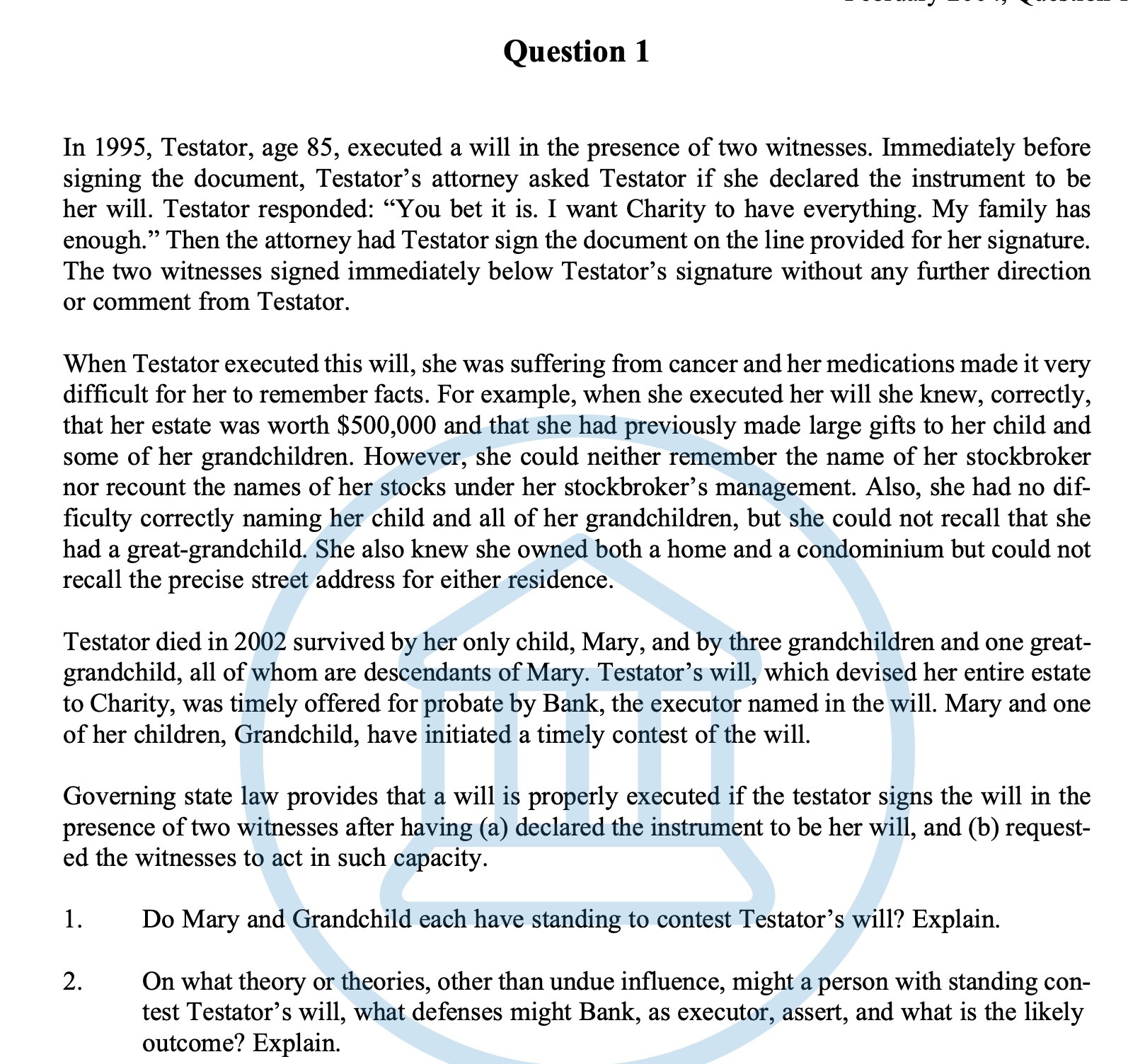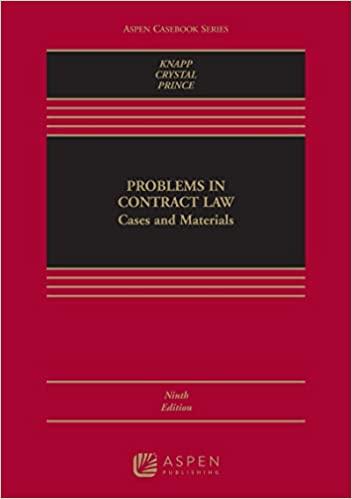Question 1 In 1995, Testator, age 85, executed a will in the presence of two witnesses. Immediately before signing the document, Testator's attorney asked Testator if she declared the instrument to be her will. Testator responded: \"You bet it is. I want Charity to have everything. My family has enough.\" Then the attorney had Testator sign the document on the line provided for her signature. The two witnesses signed immediately below Testator's signature without any further direction or comment from Testator. When Testator executed this will, she was suffering from cancer and her medications made it very difcult for her to remember facts. For example, when she executed her will she knew, correctly, that her estate was worth $500,000 and that she had previously made large gifts to her child and some of her grandchildren. However, she could neither remember the name of her stockbroker nor recount the names of her stocks under her stockbroker's management. Also, she had no dif- culty correctly naming her child and all of her grandchildren, but she could not recall that she had a great-grandchild. She also knew she owned both a home and a condominium but could not recall the precise street address for either residence. Testator died in 2002 survived by her only child, Mary, and by three grandchildren and one great- grandchild, all of whom are descendants of Mary. Testator's will, which devised her entire estate to Charity, was timely offered for probate by Bank, the executor named in the will. Mary and one of her children, Grandchild, have initiated a timely contest of the will. Governing state law provides that a will is properly executed if the testator signs the will in the presence of two witnesses after having (a) declared the instrument to be her will, and (b) request ed the witnesses to act in such capacity. I. Do Mary and Grandchild each have standing to contest Testator's will? Explain. 2. On what theory or theories, other than undue inuence, might a person with standing con- test Testator's will, What defenses might Bank, as executor, assert, and what is the likely outcome? Explain







